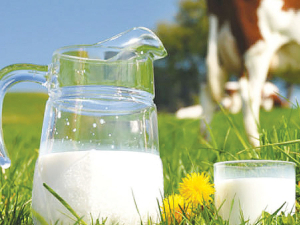Glut in global milk supply keeping prices down
The final Global Dairy Trade (GDT) auction has delivered bad news for dairy farmers.
 Analysts are now advising farmers to budget on the lower range of Fonterra’s forecast range of $6.25 to $7.75/kgMS.
Analysts are now advising farmers to budget on the lower range of Fonterra’s forecast range of $6.25 to $7.75/kgMS.
OPINION: Last week's Global Dairy Trade (GDT) auction result doesn’t make good reading.
Prices of major dairy commodities have fallen by a quarter over the past year. Looking over a longer period, whole milk powder (WMP) prices are now at a seven-year low.
Just a few months ago, analysts were predicting a farmgate milk price over $8.50/ kgMS.
A string of GDT price slumps has snuffed out confidence. Analysts are now advising farmers to budget on the lower range of Fonterra’s forecast range of $6.25 to $7.75/kgMS.
Fonterra this month slashed its forecast range mid-point by $1/kgMS.
Before Fonterra’s decision and the dramatic price falls on GDT, DairyNZ’s 2023- 24 forecast for net cash income was $8.78kg/ MS.
It’s estimated total expenses were on average around $8.72 kg/MS for the same season.
With analysts now eying a payout under $7/kgMS, there is a risk of significant cash loss for many dairy farmers.
DairyNZ rightly points out that this isn’t the first time there has been large milk price forecast decreases.
“And we know from experience that farmers rein in their expenditure, to minimise cash losses.”
Dairy sector debt has also decreased by $5.4 billion, from $41.7 billion in 2018 to $36.3 billion in 2023, putting farmers in a better financial position.
There are a few key things that farmers can consider, to help manage their farm businesses during the current economic climate.
With a reduced milk price forecast, now is the time to look line-by-line at where spending can be decreased and pause non-essential capital projects. However, changes need to be well thought through and not have longterm effects on profit, or the wellbeing of your people or animals.
Dairy farmers are known for their resilience, but that doesn’t make coping during challenging times any easier.
There was much theatre in the Beehive before the Government's new Resource Management Act (RMA) reform bills were introduced into Parliament last week.
The government has unveiled yet another move which it claims will unlock the potential of the country’s cities and region.
The government is hailing the news that food and fibre exports are predicted to reach a record $62 billion in the next year.
The final Global Dairy Trade (GDT) auction has delivered bad news for dairy farmers.
One person intimately involved in the new legislation to replace the Resource Management Act (RMA) is the outgoing chief executive of the Ministry for the Environment, James Palmer, who's also worked in local government.
T&G Global says its 2025 New Zealand apple season has delivered higher returns for growers, reflecting strong global consumer demand and pricing across its Envy and Jazz apple brands.
President Donald Trump’s decision to impose tariffs on imports into the US is doing good things for global trade, according…
Seen a giant cheese roll rolling along Southland’s roads?